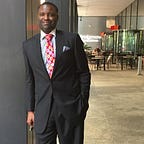Time’s 2015 Person of the Year? Big Brother, for a unique twist on surveillance culture and putting American racism on blast
By Kanu Iheukumere
For its role in exposing racism, perhaps Big Brother should be TIME magazine’s Person of the Year.
From cellphones to traffic stops, cameras are poised to capture every angle of American life, so much so, the all-seeing eye of Big Brother is paying off: Contemporary surveillance culture offers the ironic reward of validating the truth of black life and structural barriers to full citizenship.
The videotape of the shooting of Chicago teen Laquan McDonald, Sandra Bland’s traffic stop in Texas or the manhandling of a South Carolina teen girl by a school-based cop, for example, provide a vivid contextual backdrop to events previously considered figments of the black imagination.
Finalists in this annual tradition reflect the zeitgeist and what’s at stake in the future of humanity. Those who made the shortlist unveiled Monday certainly fill that bill: Abu Bakr Al-Baghdadi, leader of ISIS; Black Lives Matter activists; Caitlyn Jenner; Travis Kalanick; Angela Merkel; Vladimir Putin; Hassan Rouhani, president of Iran; and Donald Trump. However, George Orwell’s 1949 classic novel “1984” highlights those stakes, too, painting a picture of the tyranny of the elite through government surveillance and public manipulation through technology. Big Brother mocked democracy, thwarting independent thought and freedom.
In 2015, Big Brother, like Frankenstein, turned on its creator, exposing policies of the ruling class (and its proxies) for what they are, fueling a groundswell of discontent as evidenced by protests on colleges campuses and disruption wrought by #blacklivesmatter. Similar to the role television played in creating the optics to make the Voting Rights Act possible, exposing racism at Sony Studios (emails) and revealing class biases during election campaigns (live microphones), Big Brother has been front and center igniting conversation. This spotlight has fueled discontent and resulted in protests, legislation and promoting candidates for elected office as a response to racist policies and the various actors supporting them.
The presence of Big Brother also makes it harder for non-black America to be either colorblind or ignore the racist activities that are happening. This is not entirely dissimilar to Nazi Germany and the complicit acceptance of most Germans to the plight of Jews and other minorities.
The presence of Big Brother also makes it harder for non-black America to be either colorblind or ignore the racist activities that are happening. This is not entirely dissimilar to Nazi Germany and the complicit acceptance of most Germans to the plight of Jews and other minorities.
The truth can’t be ignored, even at the highest levels:
“There is a specific problem that is happening in the African-American community that’s not happening in other communities” President Obama recently commented. “The African-American community is not just making this up. It’s not just something being politicized. It’s real. And there’s a history behind it. And we have to take it seriously.”
In 2015, Big Brother has been bold in his declaration: It is open season on American racism. Technology has exposed obstructionists who have politicized abuse of power by law enforcement or denied government acts of domestic terrorism toward African-American communities, to support their blame-the-victim mentality much like black-and-white TV images exposed the stark violence of the civil rights movement in the 1960s.
Marginalized communities are not without agency, however. Somehow grassroots mobilization needs to translate into effective lobbying, legislation and litigation.
“Policy is meaningless, without political power behind you,” according to Robert Reich, former U.S. labor secretary.
Simply put, that means voting. Oppression is high in communities where voter turnout is low. Voter apathy in African-American communities is a zero sum game, where every act of abstention is a win for racism. For those who suspect their participation would not have an impact, there is no question about the impact of not voting on quality of life. Just ask the working mother who can no longer access childcare or the student doing her best at an inferior high school, with a shameful student-teacher ratio. Ask the senior citizen priced out of the prescription drug market, or the idle youth without enrichment community programming to keep them occupied, safe or even alive.
Voting unlocks the way toward restructuring regressive legislative priorities, such as voter ID and right-to-work laws, movements the working class never asked for and don’t address what’s really going on in the lives of marginalized citizens.
So let’s raise a glass to Big Brother for exposing the injustices of black life, which can serve as foundation to develop long-term solutions to address America’s racist underpinnings once and for all. Cheers!
Kanu Iheukumere is chief policy and research officer at Bethel New Life, an organization dedicated to fighting poverty and providing a path to viable work in Chicago.
